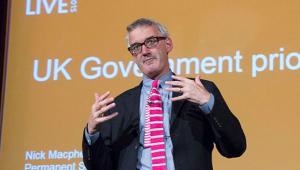On the central question of Brexit, all the mood music is that the UK will not seek a Norway-style arrangement on the single market as this would negate the public’s desire via the referendum for greater control of our borders. So it appears we are headed for ‘hard Brexit’, where we do not negotiate a special and unique deal on EU trade.
The public – including most Remainers – wish the will of the people to be implemented. If there was spin, say that more money would be given to the NHS, that’s the way campaigns and democracy works; and the same complaint could be said after any general election. And so most say, “Let’s make a good job of whatever comes next because we are a remarkable country and the EU is probably going nowhere good in the medium term anyway,”. But if many leading Remainers in the new cabinet appear good losers who have moved on, it strikes me that, conversely, many Leavers next to them on the frontbenches come across as rather poor winners who are still in pre-referendum campaign mode. And for me that’s probably the biggest medium-term political risk for the government. They have promised to act in the interests of the country as a whole and build consensus, but will they? No, the government shouldn't expose its detailed hand before negotiation, however the public did decide to make our parliament sovereign again rather than expressly strengthen a prime minister’s rights to act alone.
My politics professor at university – the marvellous Tony King – advised his students that for all the analytical psephology we studied, sometimes you can just feel that something big is happening with the public mood. And here I don’t mean party-political discussions, for example the likely electoral collapse of the Labour Party as its growing membership moves in one direction and a proportion of its prospective voters go in the other. Rather, clearly the big thing going on, including in countries that have never belonged to the EU let alone voted to leave it, is a breakdown in trust between the public and our political institutions and leaders.
I feel reasonably certain we will leave the EU by the middle of 2019, probably taking an economic hit in terms of GDP and living standards in the short term, and then bounce back, probably by being more deregulated than EU competitors, but I really haven’t got a clue what the public’s deep-seated frustration with our institutions and leaders will ultimately mean for our destiny. The public has been promised that leaving the EU will raise the living standards of hard-working people struggling to get by. What happens if it doesn't?
In assessing the likely impact of this context on public services, I have to differentiate between what I would like to happen and what will probably happen. Because it looks like the government will be in power for quite a long time – unless they ‘do a UKIP’ and start (literally) fighting each other – I would most like to see policy that puts things right for the medium term, for example in skills, housing and health.
• Our country lacks the skills to raise productivity and needs 14-19 policies that once and for all create vocational and academic parity of esteem to encourage vocational skills learning at 14 where that’s appropriate. I fear instead we’ll have rows about grammar schools. Personally I’d say we must encourage any schools that are good – whether grammar, comprehensive, academy or free – to flourish; but more materially it’s a debate where form should follow function. We need better skills training and growth in apprenticeships to be economically successful and so the arguments about the best form of traditional academic 11-19 schools just leave me cold because it makes little real difference to the economic outcome.
• I would like to see the housing crisis end by local authorities being allowed to build council homes over a sustained period in material numbers because in reality all other policy initiatives over the last 30 years have failed to meet demand. My fear is that yet another bold target for house building will be set whilst the shackles are kept on councils.
• It will not be deliverable, or acceptable to the public, that health spend per capita and GDP share is set to fall. That the NHS needs more money is not at odds with also saying it can be more efficiently delivered. But unplanned bailouts down the line will make things worse rather than better. The overall system needs to see a higher proportion spent on prevention, public health, mental heath, primary care and social care; but this will happen only by an upfront material injection of resources linked to setting right the baseline for acute providers and simultaneously building capabilities for STPs to do as they say on the tin and sustain and transform local health economies for their whole populations. This is achievable but will take time. My fear is the lack of realism about the funding needed will lead (yet again) to knee-jerk policy changes and bailouts.
I am an accountant, so my basic philosophy is that the spending is always best contained within the envelope provided by clear priorities and decisions to complement grip. The UK is a relatively low-tax economy by developed world standards, but the government is promising an expansion of services that are often more costly. For example, more new schools to create choice even where places are not needed and 24/7 health services. Our last prime minister never quite reconciled the rhetoric of one nation politics with the actual policies that came forward and our new premier’s government won’t get away with hawkish spending decisions, low tax and better grip being combined with a dove-ish making-ends-meet narrative that promises more. And equally, Brexit means Brexit, but what does Brexit mean?





















